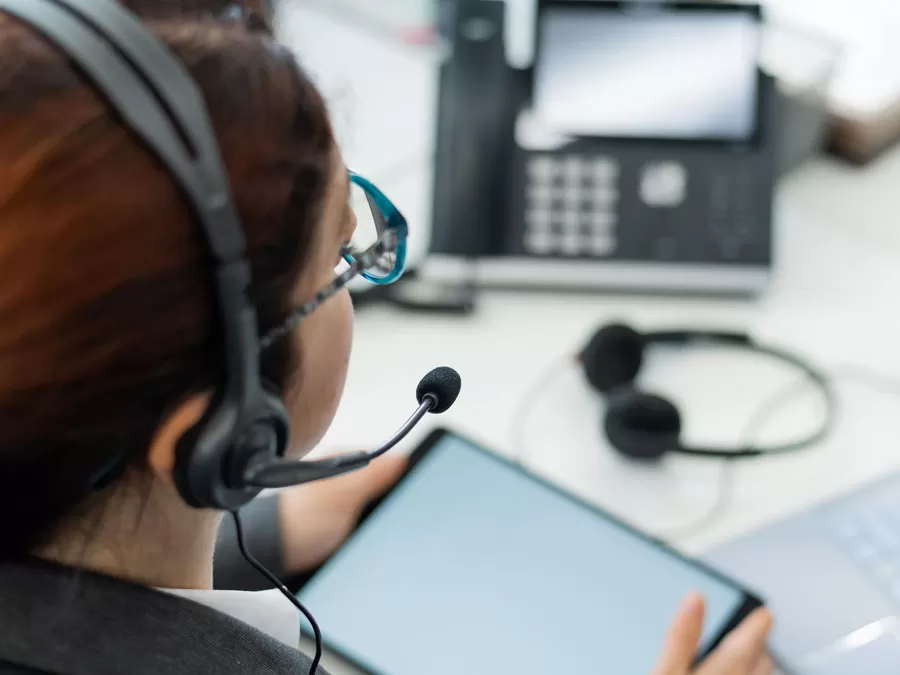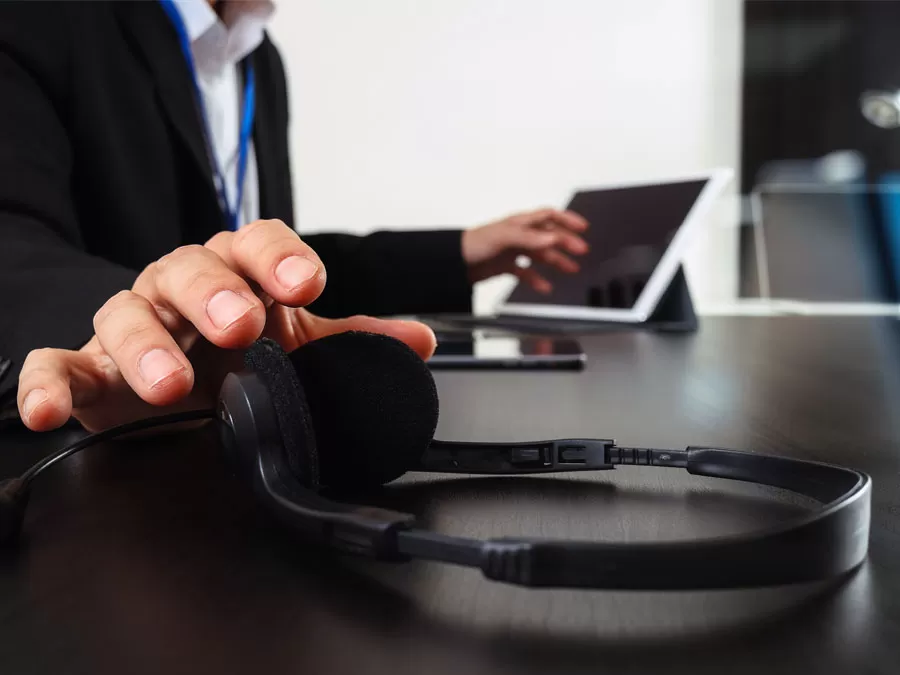Table Of Contents
- Benefits of a Multichannel Team to the Brand and the Customers
- Key Characteristics of a High-Performing Multichannel Team
- Building a Multichannel Dream Team
- Pitfalls to Watch Out for and Best Practices to Follow
- Proven Approaches for Building a Strong Multichannel Team
- Maintaining Multichannel Team Performance Quality
- How Outsourced Call Centers Empower Multichannel CX to Meet Evolving Customer Needs
- Contact Us
Call centers need to build a consistent and memorable customer experience covering all channels, both digital and non-digital.
To do this, you need a high-performing multichannel team that can successfully implement your customer service strategy. At first, however, you may find this task challenging or you may be clueless as to where you should start.
The Significance of Multichannel Teams in Modern Customer Service
A multichannel team refers to a group of individuals with specialized skills and expertise in managing customer interactions across various channels such as phone calls, emails, live chat, social media, and more. The importance of a multichannel team lies in its ability to deliver consistent and seamless customer service, enhance brand reputation, and improve overall customer satisfaction.
A high-performing multichannel team brings several benefits to both the call center and the partner brands they represent, as well as the customers they serve.
Benefits to the Call Center
- Improved operational efficiency and productivity
- Higher customer satisfaction ratings
- Increased customer loyalty and retention
- Enhanced brand reputation
- Reduced operational costs through streamlined workflows and optimized resource allocation
Benefits to Partner Brands
- Consistent brand representation across channels
- Efficient handling of customer inquiries and issues
- Increased customer engagement and brand loyalty
- Improved partner brand perception and reputation
Benefits to Customers
- Seamless and personalized customer experiences
- Quick and accurate resolution of issues
- Convenience and flexibility in choosing their preferred communication channel
- Access to comprehensive support and information across multiple touchpoints
Key Characteristics of a High-Performing Multichannel Team
Building a high-performing multichannel team requires individuals with specific qualities and skills. Here are some key characteristics that contribute to the success of a multichannel team:
-
Effective Communication and Collaboration
Strong communication skills and the ability to collaborate with team members are crucial for a multichannel team.
-
Adaptability and Quick Learning
Team members should be adaptable and quick learners, able to embrace new technologies and tools for different communication channels.
-
Exceptional Problem-Solving
Strong problem-solving abilities are necessary to analyze situations and provide effective solutions to customers.
-
Empathy and Customer-Centric Mindset
Team members should have empathy and prioritize the customer s experience across all channels.
-
Efficient Time Management and Organization
Strong time management and organizational skills are essential for handling multiple customer interactions simultaneously.
-
Flexibility and Handling Pressure
Team members should remain calm and adaptable in high-pressure situations.
-
Proactive Attitude for Continuous Improvement
A high-performing multichannel team actively seeks growth opportunities and strives for continuous improvement.
Building a Multichannel Dream Team
Building a high-performing multichannel team is a critical step towards achieving exceptional customer service and optimizing business performance. However, it is not without its challenges. In this section, we will explore the process of building a multichannel team, discuss the common challenges faced, and highlight the potential pitfalls to avoid.
Challenges When Building a Multichannel Team
From the diverse skill requirements to balancing workload and integrating different channels and systems, organizations encounter several hurdles when assembling an effective multichannel team.
-
Diverse Skill Requirements
Multichannel customer service requires a diverse range of skills, from effective communication across various channels to technical proficiency with different tools and technologies. Finding individuals who possess all the necessary skills can be challenging.
-
Balancing Workload and Availability
Managing the workload across multiple channels while ensuring adequate coverage and response times can be complex. It requires careful planning and coordination to optimize resource allocation and maintain service levels.
-
Integration of Channels and Systems
Integrating different communication channels and systems seamlessly can be a technical and logistical challenge. It is crucial to ensure that channels work together harmoniously and that data and information flow smoothly across platforms.
Pitfalls to Watch Out for and Best Practices to Follow
When it comes to building and managing a multichannel team, there are certain pitfalls and common mistakes that organizations should be aware of and actively avoid. By proactively avoiding these mistakes, organizations can establish a strong foundation for their multichannel team and maximize its potential for delivering exceptional customer service.
-
Neglecting Proper Training and Onboarding
Insufficient training and onboarding can hinder team members ability to deliver consistent and high-quality service across channels. It is essential to invest in comprehensive training programs to equip team members with the necessary skills and knowledge.
-
Lack of Clear Roles and Responsibilities
Without clear roles and responsibilities, team members may face confusion, duplication of efforts, and gaps in service. Defining and communicating clear roles and expectations are crucial for efficient teamwork and smooth operations.
-
Poor Communication and Collaboration
Ineffective communication and a lack of collaboration can lead to misunderstandings, inefficiencies, and missed opportunities. It is vital to establish open channels of communication, encourage teamwork, and foster a culture of collaboration.
-
Inadequate Performance Monitoring and Feedback
Without proper performance monitoring and feedback mechanisms in place, it becomes challenging to identify areas of improvement and provide guidance to team members. Regular performance evaluations and constructive feedback are necessary to drive continuous growth and development.
Proven Approaches for Building a Strong Multichannel Team
Building a successful multichannel team requires careful planning and implementation of effective strategies. Your high-performing multichannel team must be able to successfully implement your customer service strategy. At first, however, you may find this task challenging or you may be clueless as to where you should start.
From establishing clear goals and roles to recruiting the right people and investing in comprehensive training, these tips will guide organizations towards creating a high-performing multichannel team capable of delivering exceptional customer service across all channels.
-
Establish Clear Goals and Roles
To build a successful multichannel team, it s important to:
- define clear objectives that align with your business goals;
- set measurable targets for customer satisfaction, response times and resolution rates; and
- link team performance to broader organizational objectives.
Additionally, assign clear roles and responsibilities to each team member, defining channel-specific tasks and fostering a sense of ownership and accountability. Ensure that every team member understands how their roles contribute to the overall success of the team.
-
Recruit the Right People
Look for individuals with excellent communication and problem-solving skills who thrive in fast-paced environments. Seek out adaptable candidates who are willing to learn new technologies and channels.
Key skills and qualities to consider when hiring for a multichannel team include:
- a strong customer service orientation;
- multitasking abilities;
- empathy;
- patience and;
- proficiency in written and verbal communication.
Implement best practices for hiring, including rigorous interviews and role-specific assessments for new applicants, and screen current employees based on their performance and interest in expanding their skill set.
-
Invest in Providing Comprehensive Training
Train team members in effective communication techniques for different channels, problem-solving and conflict resolution skills, product and process knowledge, and time management and prioritization. Conduct interactive training sessions, provide access to online resources and self-paced learning modules, and encourage hands-on practice and mentorship.
Regularly assess and evaluate the effectiveness of the training program through feedback collection, performance metrics measurement, and addressing any gaps in knowledge or skill development.
-
Utilize Technology and Tools
Identify and implement suitable technology and tools to support efficient multichannel operations. Conduct a thorough needs assessment to understand requirements and explore integrated customer relationship management (CRM) and communication platforms.
Emphasize the importance of using project management and collaboration platforms to streamline workflows, centralize task management, facilitate communication and knowledge sharing among team members, and enable efficient tracking and reporting of customer interactions. Leverage CRM systems to gain a 360-degree view of customer interactions and preferences, use data analytics to identify trends and areas for improvement, and streamline processes through automation.
-
Break Down Internal Silos
Silos are isolated departments or individuals that hinder information sharing and collaboration, leading to miscommunication, duplicated efforts, and reduced efficiency. Silos within the workplace can negatively affect performance, productivity, and communication.
Prevent workplace and communication silos by encouraging cross-departmental collaboration and knowledge sharing, fostering a culture of open communication and transparency, and establishing regular meetings and cross-functional projects to break down barriers.
-
Foster Effective Communication
Effective communication is essential for a high-performing multichannel team. Ensure consistent messaging and aligned responses across channels to deliver a seamless customer experience. Encourage collaboration and information sharing among team members to enhance knowledge and expertise. Minimize misunderstandings and conflicts by promoting active listening and providing constructive feedback.
Train team members in active listening techniques, foster a culture of continuous improvement through feedback, and regularly review and refine communication processes based on customer feedback.
-
Promote Collaboration and Cross-Channel Synergy
Create a collaborative team culture that values sharing ideas and knowledge. Encourage brainstorming sessions and idea exchanges, recognize and celebrate successful collaborations, and foster a supportive and inclusive environment. Facilitate cross-channel collaboration to leverage the strengths of each team member by promoting cross-training and knowledge sharing.
Establish mentorship programs to facilitate learning from experienced team members and schedule regular team meetings or huddles to foster collaboration and exchange insights.
-
Empower and Develop Team Members
Invest in the growth and development of your team members to enhance their skills and job satisfaction. Offer workshops, seminars, and certifications for continuous learning. Encourage team members to pursue professional development opportunities.
Provide mentorship and coaching programs to support their growth. Implement a performance recognition program to recognize and reward high-performing team members, celebrate individual and team achievements, and provide opportunities for career advancement.
Encourage autonomy and empowerment within their roles by delegating decision-making authority, fostering a sense of ownership and accountability, and promoting innovative thinking and problem-solving.
Maintaining Multichannel Team Performance Quality
With the dynamic nature of customer interactions across various channels, it is essential to maintain your multichannel team s performance quality to meet customer expectations and drive business success. By implementing these practices, call center leaders can proactively address challenges, optimize performance, and deliver exceptional multichannel customer service experiences.
-
Monitor and Measure Performance
Implement performance metrics and monitoring systems to track the team s performance across different channels. Regularly assess key performance indicators (KPIs) such as average response time, customer satisfaction ratings, resolution rates, and first-call resolution. Provide feedback and coaching to improve individual and team performance.
-
Encourage Feedback and Continuous Improvement
Foster a culture of open communication and encourage team members to provide feedback on challenges, customer pain points, and suggestions for improvement. Regularly review and refine processes based on customer feedback, market trends, and evolving customer needs.
-
Support Employee Well-Being
Recognize and address the potential stressors of a multichannel team. Implement measures to support employee well-being, such as work-life balance initiatives, stress management programs, and opportunities for professional growth. Show appreciation for their efforts and create a positive work environment.
-
Continuous Training and Development
Invest in ongoing training and development programs to enhance the team s skills and keep them updated on new technologies, customer service best practices, and industry trends. Encourage a growth mindset and provide resources for self-directed learning.
-
Celebrate Successes
Celebrate team achievements, milestones, and successes to boost morale and foster a positive team culture. Recognize and reward individual and team accomplishments to motivate and inspire continuous high performance.
How Outsourced Call Centers Empower Multichannel CX to Meet Evolving Customer Needs
To stay competitive and deliver exceptional customer experiences in today s rapidly evolving business landscape, businesses need to adapt and evolve their multichannel customer service strategies. This is where outsourced call centers play a crucial role.
-
Specialized Expertise
Outsourced call centers bring specialized expertise to the table. They have extensive experience in managing multichannel customer interactions, including phone calls, emails, live chat, social media, and more.
By partnering with an outsourced call center, businesses gain access to professionals who are trained in handling diverse communication channels. This expertise ensures that businesses can meet the demands of customers across various channels and adapt their customer service approaches to align with changing preferences.
-
Scalability and Flexibility
One of the key advantages of outsourced call centers is their ability to scale operations and provide flexibility. As customer demands fluctuate or during peak periods, outsourced call centers can quickly adjust their team size to ensure optimal service levels.
This scalability allows businesses to handle varying call volumes, manage inquiries across multiple channels, and provide consistent customer experiences. The flexibility offered by outsourced call centers enables businesses to adapt and evolve their multichannel customer service as market dynamics change.
-
Advanced Technology and Tools
Outsourced call centers invest in advanced technology and tools to support multichannel customer service operations. They utilize state-of-the-art call center software, customer relationship management (CRM) systems, and analytics tools.
These technologies enhance efficiency, streamline workflows, and improve the overall customer experience. By leveraging the technology infrastructure of outsourced call centers, businesses can stay ahead of the curve, adopt new communication channels, and adapt their strategies to align with changing customer preferences.
-
Market Insights and Best Practices
Outsourced call centers work with clients across different industries, providing them with valuable market insights and knowledge of industry best practices. They have a finger on the pulse of evolving customer preferences, emerging trends, and innovative approaches.
By partnering with an outsourced call center, businesses can tap into this expertise and gain valuable insights. These insights enable businesses to refine their multichannel customer service strategies, personalize experiences, and adapt to the changing demands of the market.
-
Continuous Improvement and Performance Measurement
Outsourced call centers prioritize continuous improvement and performance measurement. They establish robust quality assurance processes, monitor key performance indicators (KPIs), and provide regular feedback and coaching to their team members. By partnering with an outsourced call center, businesses gain access to performance metrics, actionable insights, and opportunities for ongoing development.
This allows businesses to optimize their multichannel customer experiences, enhance customer satisfaction, and adapt their strategies to align with evolving customer preferences and market dynamics.
As a multilingual outsourcing firm, Open Access BPO develops hyper-customized multichannel business solutions. We build teams of experts for each partner to ensure high quality support for companies of all sizes and industries.
Let us create the multichannel program and team for your brand. Contact us today!





